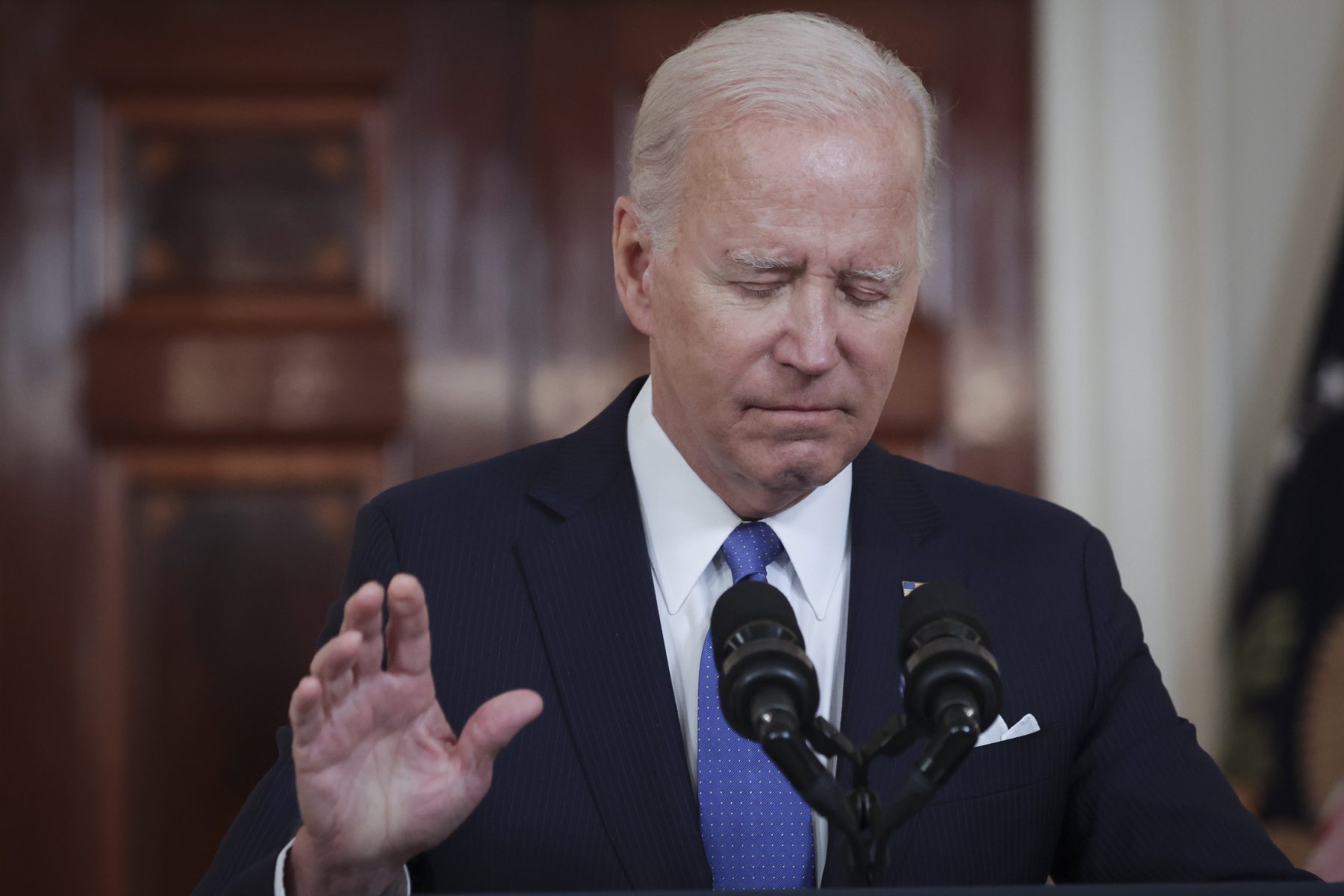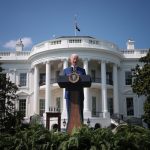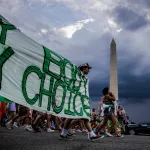President Joe Biden told the nation Friday that it is up to Congress to restore federal abortion protections.
His remarks followed the Supreme Court’s 6-3 opinion overturning Roe v. Wade, a landmark 1973 decision, upending abortion rights by leaving them to the states to decide. Biden’s statement came after weeks of pressure from activists and Democratic lawmakers who called on the president to use the weight of his executive authority to help people, particularly those from vulnerable communities, secure abortion options.
But Biden said his authority is limited.
“The only way we can secure a woman’s right to choose and the balance that existed is for Congress to restore the protections of Roe v. Wade as federal law,” Biden said in remarks at the White House Friday. “No executive action from the president can do that.”
He then encouraged viewers to vote for elected officials with an interest in protecting abortion rights. “This fall, Roe is on the ballot. Personal freedoms are on the ballot. The right to privacy, liberty, equality, they’re all on the ballot,” Biden continued. “Until then, I will do all in my power to protect a woman’s right in states where they will face the consequences of today’s decision.”
Some abortion rights advocates expressed anger and frustration with what they characterized as inaction by the Biden administration. For Renee Bracey Sherman, founder and executive director of We Testify, an organization that tells the stories of people who have had abortions, Biden’s response is too little, too late.
“The fact that he waited to address the nation after this happened when people haven’t had abortion in Texas for 10 months, the fact that people haven’t had abortion in Oklahoma for a month — that is letting down the American people, that is letting down every single one of us who’s ever had an abortion, and that is not leadership,” Sherman said.
Sherman, who spoke with The 19th while protesting outside the U.S. Supreme Court on Friday, said groups have called on the president for months to take action. But, she said, he has failed to show up for people who need his support the most, including Black, Brown and low-income communities that will be disproportionately affected by abortion restrictions.
The state of Mississippi, for example, where the Dobbs v. Jackson Women’s Health Organization case at the heart of Friday’s Supreme Court’s ruling originated, has the highest percentage of Black residents in the country. Michele Goodwin, a chancellor’s professor of law at the University of California, Irvine, said the state’s long history of restricting rights for Black people cannot be ignored in light of the Dobbs ruling.
“This is why I’ve been calling this the new Jane Crow in the United States,” Goodwin said. “I think that there is a lot that we can learn from the horrific nature of the playbook that’s been laid out by similar states; Mississippi was well played. It was quite aggressive.”
In terms of executive action the president can take, Sherman said the administration should make medication abortion pills like mifepristone available for people over the counter. She said he could also allow for abortion providers to be able to dispense pills to patients regardless of whether they live in a state with restricted abortion access.
During his remarks, Biden said he will direct the Department of Health and Human Services , which oversees the FDA, to ensure medications such as mifepristone are available “to the fullest extent possible.” Earlier in the day, Attorney General Merrick Garland indicated that the Justice Department is ready to protect abortion access, though neither offered details of specific actions to be taken.
The court’s ruling has been expected since May, when a draft opinion was leaked to Politico. In the weeks leading up to the decision, which triggered state laws that immediately banned abortion in more than a dozen states, officials and abortion advocates have debated the extent of the president’s authority to challenge the Supreme Court’s decision.
One focal point of the debate is the federal Hyde Amendment, which bars federal money from being used to provide abortion services except to save the pregnant person’s life. These restrictions of the amendment have raised questions about how much Biden can do legally to support abortion.
Elizabeth Sepper, a health law professor with the University of Texas at Austin, said the administration could use some creative avenues to help people or at the very least send a strong message. One such proposal has been to use federal lands as a way to provide abortions services, in order to bypass state bans. In a letter to the president earlier this month, Democratic Sens. Elizabeth Warren of Massachusetts and Patty Murray of Washington spoke to this point.
“The Department of Justice and all relevant agencies could analyze the types of reproductive health services that could be provided on federal property, especially in states where such services are limited by state law or regulation,” the letter read.
Beyond expressing an intention to protect medication abortion and prevent restrictive states from blocking people’s ability to travel for abortion procedures, Biden did not address federal land use or other points raised by Warren and Murray’s letter, including the proposal to provide travel vouchers to patients in states without access.
Now that the Supreme Court’s decision is final, the clock is ticking on Biden’s response and his commitment to protecting all people equally, Goodwin said.
“What this is, is a tale of two cities, a tale of two different countries, where some people will be free and other people will be not, as related to their reproductive privacy and health. And that can’t stand,” Goodwin said.





